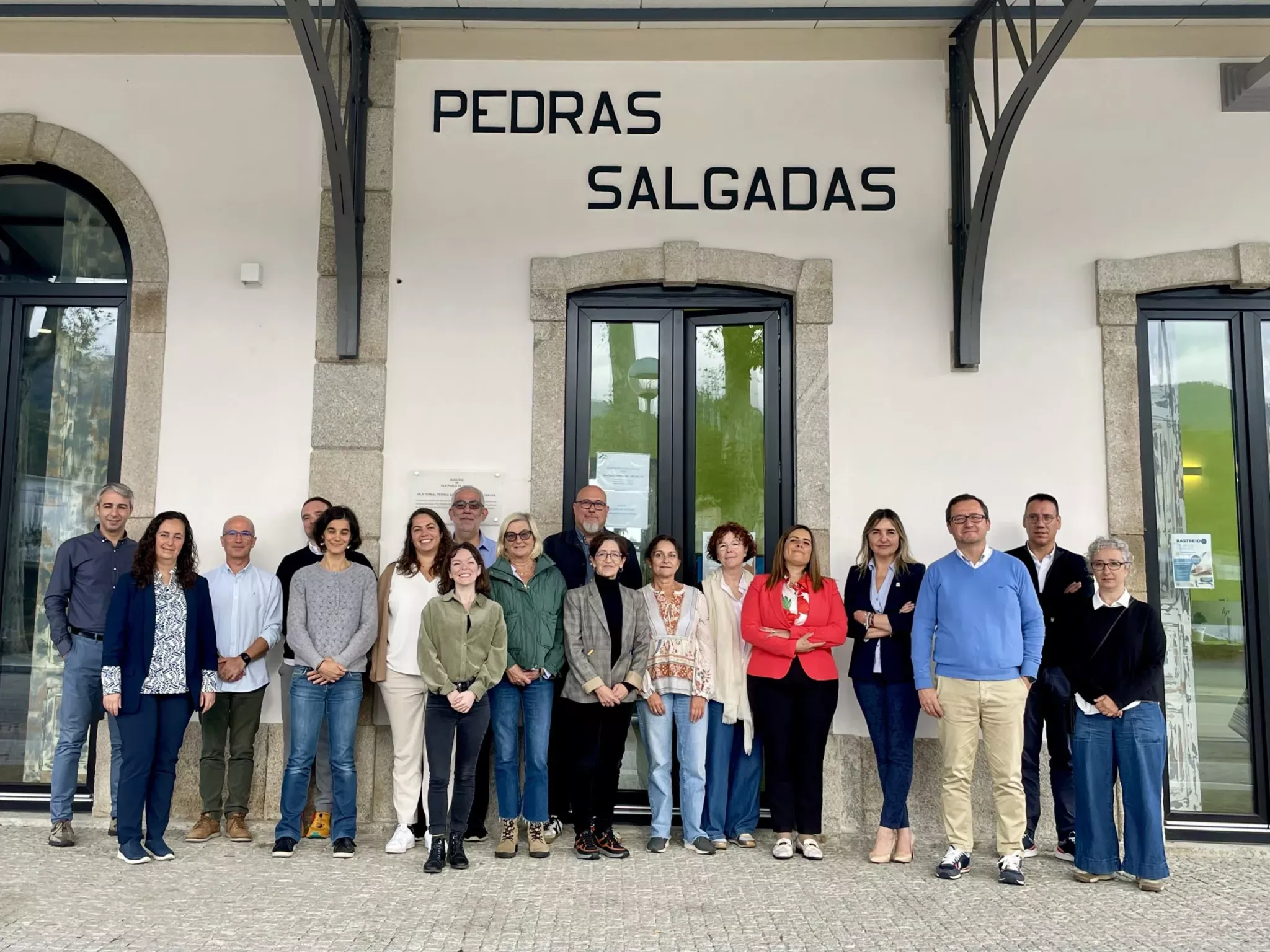The “Caminos de Santiago – Ultreia Sudoe” meeting took place on October 15 and 16 in Pedras Salgadas, bringing together representatives from various organizations in Portugal, Spain, and France to discuss strategies for cooperation and sustainable development along the Camino de Santiago. Participants included the Fundación Camino Lebaniego, the Associação de Municípios do Caminho de Santiago, the Fundación Santa María la Real, the Agence Française des Chemins de Compostelle, the Amica Association, the Municipality of Vila Pouca de Aguiar, NOVA University of Lisbon, and other representatives.
The meeting resulted in several concrete actions to be implemented to improve accessibility, safety, and promotion of the Camino. Highlights included the launch of new digital tools and awareness campaigns for more sustainable tourism. Future meetings were scheduled to monitor progress and continue cooperative efforts across the regions.
Accessibility on the Camino was one of the main topics, with the Amica Association proposing a new guide to make the route accessible to people with reduced mobility or physical and intellectual limitations. Vila Pouca de Aguiar stood out for already offering accessible infrastructure, such as the Sabroso Albergue, the Welcome Center, and the Parque das Pedras.
Another important point was the promotion of sustainable tourism. The integration and participation of the local community were emphasized, aiming not only to ensure the comfort of pilgrims but also to revitalize the economic and cultural aspects of the areas along the route. Xacobeo S.A. highlighted the importance of Vila Pouca de Aguiar as a strategic point on the European route, despite its small size.
The creation of development hubs along the route was also discussed to stimulate the local economy, with a focus on cultural attractions and regional gastronomy. Under the motto “What to visit, what to taste,” organizers hope pilgrims will discover local heritage and contribute to a circular economy.
The implementation of a digital platform was deemed essential to centralize information about the Camino and the regions it traverses. This tool will include online sales of local products, with direct shipping to visitors, modernizing the experience.
Source: Gazeta Rural
